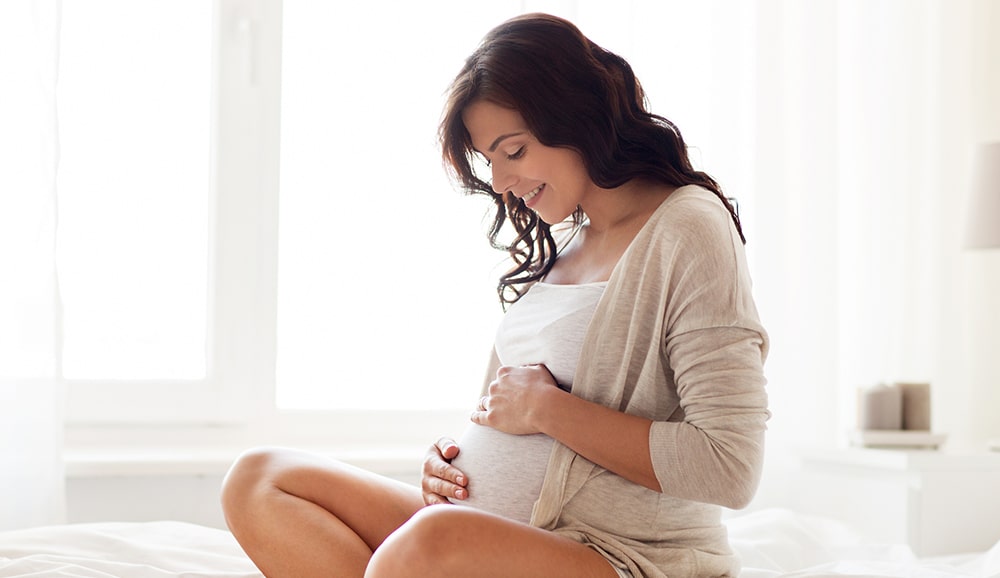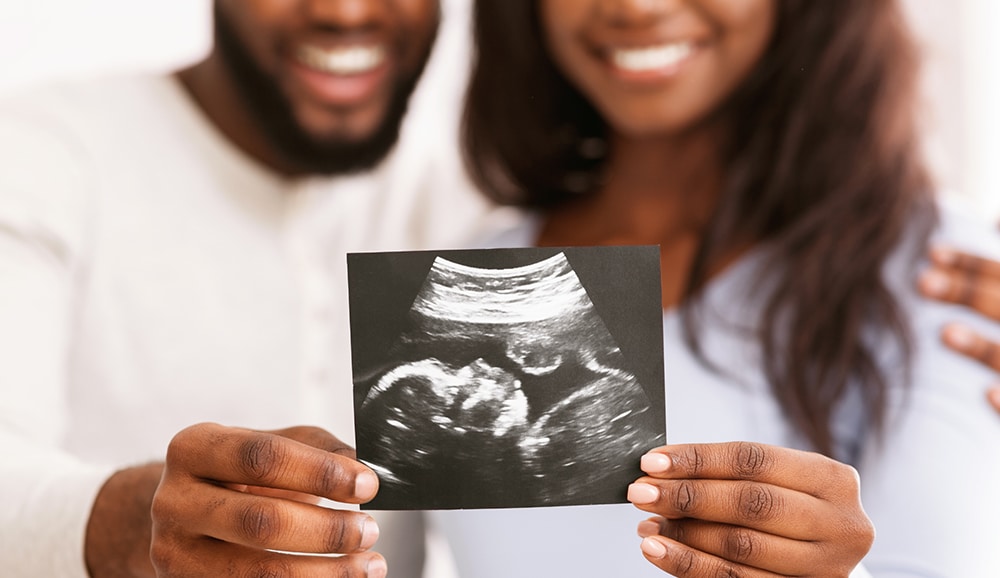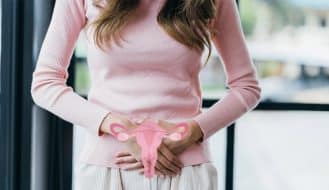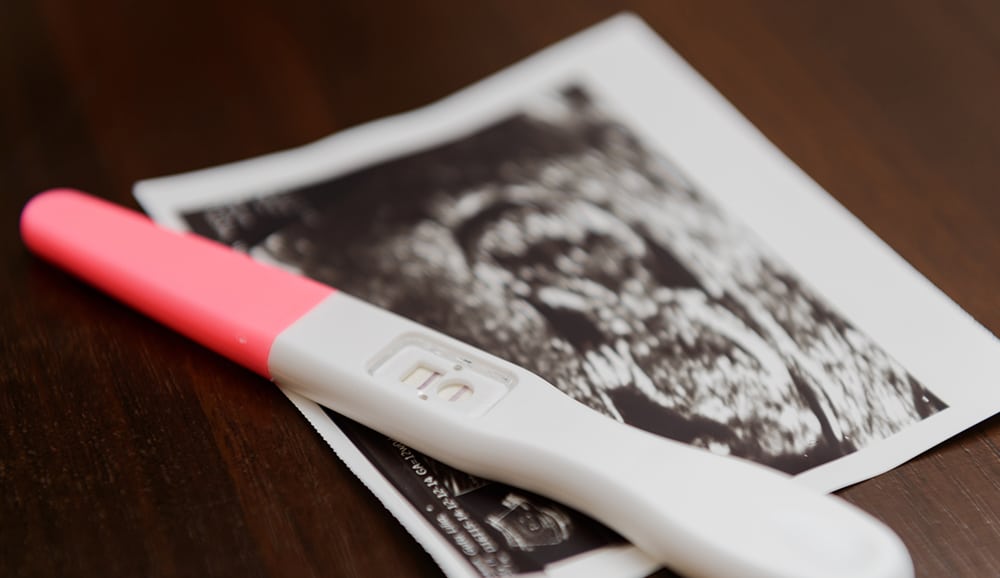8 Ways to Naturally Boost Your Fertility in Your 30s
Navigating fertility in your 30s can feel like a balancing act. While it’s true that both female and male fertility naturally declines with age, it’s far from impossible to conceive during this decade. In fact, many people in their 30s – and even 40s – successfully grow their families, often with the help of small lifestyle changes that support reproductive health.
Before turning to a fertility specialist, there are a few things you can do to increase your chances of getting pregnant naturally.
Read on for our top tips for how to boost fertility in your 30s.
When is Female Fertility at its Highest?
Female fertility is at its peak in the years before age 30, with the chances of conceiving naturally decreasing as women age. By the time a woman reaches her late 20s, her eggs are most viable, and the likelihood of conception is highest.
On average, a woman under 30 has an 85% chance of conceiving within a year of trying. This probability drops to 75% by age 30, 66% by age 35, and 44% by age 40 (1). Having a 66% chance of conceiving at 35 is still very encouraging for many hopeful parents.
When is Male Fertility at its Highest?
Male fertility reaches its peak between the ages of 25 and 29, when sperm production, quality, and hormone levels are at their most optimal (2). During this time, testosterone levels are robust, and sperm are generally more abundant, motile, and morphologically normal.
While male fertility doesn’t decline as rapidly with age as it does for women, it does experience gradual changes over time, particularly after age 40. Despite these declines, many men can still father children well into their later years (3).
Factors that Affect Fertility in Men and Women
Fertility can be affected by a mix of lifestyle choices, environmental exposures, and overall health. Key factors like nutrition, weight, exercise, and stress management can significantly impact reproductive potential.
- Diet: Eating plenty of whole grains, fatty fish, and plant-based proteins can improve fertility. Antioxidants and folate in the diet can also boost chances of conception (4).
- Body Weight: Keeping a BMI between 20 and 25 gives women the best odds of conceiving (4), as obesity can lower fertility and increase miscarriage risk. For men, carrying extra weight can also harm sperm quality and DNA health.
- Environmental Factors: Everyday exposures to chemicals in plastics and pesticides can affect fertility (4). Stress and lack of sleep also play a role, impacting hormone balance and reproductive health.
- Genetics: Sometimes, fertility issues come down to genetics. Conditions like Klinefelter or Turner syndrome can make conceiving harder (5). Genetic testing can help identify potential barriers and guide next steps.
Tips for How to Boost Fertility in Your 30s

Looking to get pregnant without the assistance of reproductive medicine? Focus on a healthy lifestyle that includes proper nutrition and exercise, quality sleep, and natural supplements known to increase fertility.
To increase fertility in your 30s, you can make small changes to support your body.
While age plays a role in conception, lifestyle factors like diet, exercise, sleep, and stress management can have a significant impact on reproductive health for both men and women, too.
1. Focus on Nutrition
There’s a significant link between nutrition and female fertility. Research shows that women who followed a “fertility diet” high in plant-based proteins, full-fat dairy, iron, and monounsaturated fats had a 66% lower risk of infertility related to ovulatory disorders compared to those with less balanced diets (6).
Similarly, men with a diet rich in omega-3 fatty acids and antioxidants tend to have higher-quality sperm in terms of count, motility, and morphology.
The Importance of Healthy Fats
Not all fats are created equal. Trans fats, often found in processed snacks like chips, donuts, and certain packaged foods, are linked to lower sperm count and increased risk of ovulatory infertility in women (7).
Although the U.S. has largely banned trans fats, trace amounts can still be present in some processed foods (8), so it’s best to avoid these altogether. Stick to healthy fats like omega-3s and polyunsaturated fats that promote better hormone regulation and reproductive function.
Foods to Avoid
Beyond processed snacks, be also mindful of red meat, sugary beverages, and low-fat dairy. Research suggests that full-fat dairy is linked to lower rates of ovulatory infertility (6), while low-fat options can have the opposite effect. Similarly, high sugar intake is associated with reduced fertility, so minimizing soda and other sugary drinks is a smart move.
2. Maintain a Healthy Weight
Your body weight and fat percentage can also impact fertility. Both being overweight and underweight can disrupt hormonal balance, ovulation, and overall reproductive health.
For women, maintaining a Body Mass Index (BMI) between 20 and 25 may be ideal for achieving pregnancy. A systematic review found that women in this range had a higher likelihood of conceiving compared to those with a BMI over 25 (9).
The Impact of Obesity on Fertility
Excess weight is associated with poorer fertility outcomes, particularly in women undergoing fertility treatments (9).
Studies show that:
- Overweight and obese women tend to have lower fertilization rates and impaired embryo quality.
- Pregnancy rates are often lower, and there is an increased risk of early pregnancy loss in women with higher BMIs.
- Gradual and sustained weight loss can improve fertility outcomes. Crash diets, however, should be avoided. They can disrupt hormone levels and negatively affect health.
For men, excess body fat can disrupt hormonal balance, reduce testosterone levels, and lower sperm quality. On the other hand, being underweight can also impair fertility in both sexes, with women experiencing disrupted ovulation and men showing decreased sperm concentration and motility.
3. Reduce Stress Levels
Stress affects fertility by disrupting the hormonal balance needed for ovulation, fertilization, and implantation. Higher levels of stress hormones like cortisol and adrenaline have been linked to lower success rates in fertility treatment. Indeed, women with lower stress levels during key stages of treatment were more likely to conceive (10).
To manage your mental health, you can try techniques such as yoga, meditation, or self-care activities like journaling. Reducing stress won’t guarantee conception, but it can support emotional well-being and create a more favorable environment for pregnancy.
4. Focus on Quality Sleep
Sleep impacts hormone regulation, which is essential for ovarian and sperm function. Poor sleep has been linked to disruptions in reproductive hormones like estrogen and testosterone, potentially affecting conception (11). Prioritizing good sleep habits is an easy way to support your overall fertility health.
5. Exercise Regularly
Regular exercise supports fertility, but balance is essential. Moderate activity can boost conception odds (12), especially for women with a normal BMI, by regulating hormones, improving insulin sensitivity, and reducing stress.
On the other hand, vigorous workouts may disrupt ovulation or hormone balance, particularly if not paired with proper nutrition. For women with polycystic ovary syndrome (PCOS), however, intense exercise like aerobic or resistance training may enhance fertility (12).
Pairing moderate, consistent exercise with good nutrition helps support reproductive health without overloading the body. A healthcare provider can help you find the best approach.
6. Limit Caffeine and Alcohol
Moderation is key when it comes to caffeine and alcohol, as both can potentially impact fertility.
Alcohol intake has been consistently associated with pregnancy complications after conception. We now also know that alcohol consumption is linked to reduced fertility in both men and women. Women consuming more than five drinks per week may have a lower chance of conceiving within six cycles compared to those who drink less (13). Similarly, men who drink heavily may see declines in sperm quality.
While the research is mixed on caffeine, some studies suggest that consuming more than 200 mg of caffeine per day (roughly two cups of coffee) may lower the chances of a live birth, particularly for women undergoing IVF (14). To play it safe, consider limiting your daily caffeine consumption to less than 200 mg when trying to conceive.
7. Consider Natural Supplements
Certain supplements can be a helpful addition to a fertility-friendly lifestyle, providing key nutrients that support reproductive health in both men and women.
Omega 3 Fatty Acids
Omega-3 fatty acids, primarily EPA and DHA, play an essential role in fertility for both men and women.
For women, omega-3s can help regulate hormones tied to ovarian health. Studies have shown that higher omega-3 levels are associated with lower follicle-stimulating hormone (FSH), a marker of ovarian aging (15). Omega-3s are also linked to improved egg quality and reduced inflammation, which can benefit women dealing with conditions like endometriosis.
For a male partner, omega-3s are equally important for sperm health. DHA, in particular, makes up a large portion of sperm cell membranes, enhancing their structure, motility, and function. Some researchers have suggested that decreased levels of DHA in spermatozoa may be associated with infertility (16).
Diets high in saturated fats (like those found in fried foods and processed snacks) and low in healthy fats (like omega-3s) tend to harm sperm quality (16). Additionally, if your diet has too much omega-6, common in vegetable oils, it can throw off the balance your body needs for optimal reproductive health.
Getting enough omega-3s is vital, but most people don’t meet their daily needs through diet alone. Fatty fish like salmon, sardines, and mackerel are excellent sources, but high-quality fish oil supplements can help bridge the gap.
When choosing a supplement, look for one with a meaningful amount of EPA and DHA and ensure it is fresh and free from oxidation. For most, a daily dose of around 2000–3000 mg of combined EPA and DHA is ideal for supporting reproductive health.
Antioxidants
Antioxidants help neutralize harmful molecules called reactive oxygen species (ROS), which can damage sperm and egg cells. While the research is still growing, studies suggest that antioxidants may improve fertility outcomes by protecting reproductive cells from oxidative stress (17).
High levels of antioxidants can enhance sperm quality, including count, motility, and morphology. A review of 34 studies revealed that men who took antioxidant supplements experienced a significant increase in live birth rates compared to those who didn’t (4).
For example:
- CoQ10: CoQ10 has shown promise in improving sperm density and shape while reducing DNA fragmentation—a key issue in older men. Studies suggest that a dose of 400 mg/day is more effective than lower amounts (18).
- Vitamin C and Vitamin E: These antioxidants are commonly studied for their ability to reduce oxidative damage to sperm DNA.
- Melatonin: While melatonin is often thought of as a sleep agent, this molecule is also a powerful antioxidant. Research suggests that melatonin may improve IVF outcomes. Studies also show melatonin may delay ovarian aging (19), which could extend the fertility window for women trying to conceive later in life. At Omega3 Innovations, melatonin can be found alongside EPA and DHA in Omega Restore.
Folate
Folate, a B-vitamin found naturally in foods like leafy greens, citrus fruits, and legumes, plays a helpful role in supporting reproductive health. Its synthetic form, folic acid, is commonly found in supplements and fortified foods.
Folate helps regulate hormonal balance and promotes healthy follicular development, both of which are crucial for regular menstrual cycles and improved fertility.
Research shows that women who take higher amounts of folic acid have better chances of conceiving and maintaining a healthy pregnancy. In fact, one study found that live birth rates were 20% higher among women with the highest levels of supplemental folate intake (20).
8. Reduce Exposure to Environmental Toxins
Environmental toxins can disrupt hormones and damage reproductive cells, creating additional challenges for fertility. Common culprits include endocrine-disrupting chemicals (EDCs), heavy metals, and tobacco smoke (21).
EDCs interfere with hormone balance. Unfortunately, they are found in everyday items like food packaging, plastics, cosmetics, sunscreen, and even clothing (22). For example, bisphenol A (BPA) and phthalates, often used in plastics, are well-known EDCs linked to fertility issues.
While these chemicals are widespread, taking small steps can reduce exposure. Choose glass or stainless steel containers over plastic, opt for natural or organic personal care products, and avoid heavily processed foods.
Can You Get Pregnant in Your 30s?

Absolutely! While fertility naturally declines as you age, many couples successfully conceive in their 30s without assisted reproductive technology.
Maintaining a healthy lifestyle can make a big difference. Focus on eating a nutrient-rich diet and incorporating moderate exercise into your routine. Limiting alcohol, caffeine, and exposure to environmental toxins can further support reproductive health.
Remember, every person’s fertility journey is unique. By taking proactive steps to care for your body and overall well-being, you can increase your chances of conceiving and starting the family you hope for.
- Delbaere I, Verbiest S, Tydén T. Knowledge about the Impact of Age on fertility: a Brief Review. Upsala Journal of Medical Sciences. 2020;125(2):167-174. doi:https://doi.org/10.1080/03009734.2019.1707913
- Ilacqua A, Izzo G, Emerenziani GP, Baldari C, Aversa A. Lifestyle and fertility: the influence of stress and quality of life on male fertility. Reproductive Biology and Endocrinology. 2018;16(1). doi:https://doi.org/10.1186/s12958-018-0436-9
- Martins da Silva S, Anderson RA. Reproductive axis ageing and fertility in men. Reviews in Endocrine & Metabolic Disorders. 2022;23(6):1109-1121. doi:https://doi.org/10.1007/s11154-022-09759-0
- Sharma R, Biedenharn KR, Fedor JM, Agarwal A. Lifestyle factors and reproductive health: taking control of your fertility. Reproductive Biology and Endocrinology. 2013;11(1):66. doi:https://doi.org/10.1186/1477-7827-11-66
- Friedrich C, Tüttelmann F. Genetics of female and male infertility. Medizinische Genetik. 2024;36(3):161-170. doi:https://doi.org/10.1515/medgen-2024-2040
- Panth N, Gavarkovs A, Tamez M, Mattei J. The Influence of Diet on Fertility and the Implications for Public Health Nutrition in the United States. Frontiers in Public Health. 2018;6(211). doi:https://doi.org/10.3389/fpubh.2018.00211
- Çekici H, Akdevelioğlu Y. The association between trans fatty acids, infertility and fetal life: a review. Human Fertility. 2018;22(3):154-163. doi:https://doi.org/10.1080/14647273.2018.1432078
- Yes, Trans Fats Still Exist After the Ban. Cleveland Clinic. https://health.clevelandclinic.org/why-trans-fats-are-bad-for-you
- Bhattacharya S, Pandey S, Pandey S, Maheshwari A. The impact of female obesity on the outcome of fertility treatment. Journal of Human Reproductive Sciences. 2010;3(2):62. doi:https://doi.org/10.4103/0974-1208.69332
- Palomba S, Daolio J, Romeo S, Battaglia FA, Marci R, La Sala GB. Lifestyle and fertility: the influence of stress and quality of life on female fertility. Reproductive Biology and Endocrinology. 2018;16(1). doi:https://doi.org/10.1186/s12958-018-0434-y
- Caetano G, Bozinovic I, Dupont C, Léger D, Lévy R, Sermondade N. Impact of sleep on female and male reproductive functions: a systematic review. Fertility and Sterility. 2020;115(3). doi:https://doi.org/10.1016/j.fertnstert.2020.08.1429
- Mussawar M, Balsom AA, Totosy de Zepetnek JO, Gordon JL. The effect of physical activity on fertility: a mini-review. F&S Reports. 2023;4(2):150-158. doi:https://doi.org/10.1016/j.xfre.2023.04.005
- Jensen TK, Hjollund NHI, Henriksen TB, et al. Does moderate alcohol consumption affect fertility? Follow up study among couples planning first pregnancy. BMJ. 1998;317(7157):505-510. doi:https://doi.org/10.1136/bmj.317.7157.505
- Ricci E, Noli S, Cipriani S, et al. Maternal and Paternal Caffeine Intake and ART Outcomes in Couples Referring to an Italian Fertility Clinic: A Prospective Cohort. Nutrients. 2018;10(8):1116. doi:https://doi.org/10.3390/nu10081116
- Bauer JL et al. Reduction in FSH Throughout the Menstrual Cycle After Omega-3 Fatty Acid Supplementation in Young Normal Weight but not Obese Women. Reprod Sci. 2019 Aug; 26(8):1025-1033. doi: 10.1177/1933719119828099
- Esmaeili V, Shahverdi AH, Moghadasian MH, Alizadeh AR. Dietary fatty acids affect semen quality: a review. Andrology. 2015;3(3):450-461. doi:https://doi.org/10.1111/andr.12024
- Showell MG, Mackenzie-Proctor R, Jordan V, Hart RJ. Antioxidants for female subfertility. Cochrane Database of Systematic Reviews. Published online August 27, 2020. doi:https://doi.org/10.1002/14651858.cd007807.pub4
- Alahmar AT. The impact of two doses of coenzyme Q10 on semen parameters and antioxidant status in men with idiopathic oligoasthenoteratozoospermia. Clinical and Experimental Reproductive Medicine. 2019;46(3):112-118. doi:https://doi.org/10.5653/cerm.2019.00136
- Yong W, Ma H, Na M, et al. Roles of melatonin in the field of reproductive medicine. Biomedicine & Pharmacotherapy. 2021;144:112001. doi:https://doi.org/10.1016/j.biopha.2021.112001
- Gaskins AJ, Afeiche M, Wright DL, et al. Dietary Folate and Reproductive Success Among Women Undergoing Assisted Reproduction. Obstetrics and gynecology. 2014;124(4):801-809. doi:https://doi.org/10.1097/AOG.0000000000000477
- Jain M, Singh M. Environmental Toxins And Infertility. PubMed. Published 2022. https://www.ncbi.nlm.nih.gov/books/NBK576379/
- Endocrine Disruptors and Your Health.; 2023. https://www.niehs.nih.gov/sites/default/files/health/materials/endocrine_disruptors_508.pdf
Popular posts



Related posts






